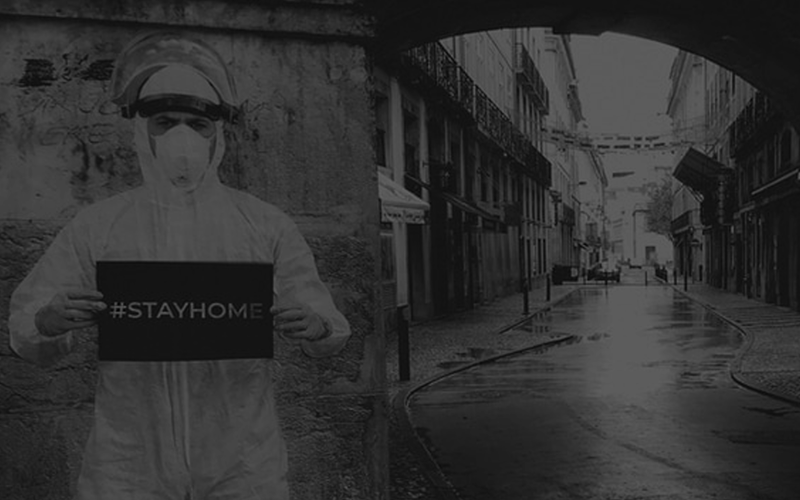COVID-19 and the Acceleration
of Pre-Existing CX Condition
“Daddy, what was a movie theater?” and other questions from the future of NPS disruption.
Times of crisis bring rapid innovation as the stakes get higher and business and society get focused. World War II accelerated industrial production, innovation and ultimately nuclear fission. COVID-19 will accelerate significant changes to business structure and customer relationships, while amplifying the gaps between leaders and laggards, whether you measure by NPS, profitability, or just survival.
Leaders in customer experience – and NPS – have always outpaced laggards, but the gap is only going to grow.
None of this should surprise anyone. The enemy of innovation isn’t just lack of ambition, it’s the absence of existential threat. Most people – and by implication many management teams – won’t undertake risky transformation unless forced to do so by the realization of immediate downside risk. That goes for losing weight or reinventing your business. It’s our nature to over-discount the future.
Against this backdrop, the current crisis is an accelerant for innovation as many business leaders come to realize that their prior level of performance comfort may have gone, forever. The question is, how will they respond?
In some instances, long term trends are playing out at an accelerated pace. The movie industry was already challenged before this most recent body blow. A combination of improvements in quality of home electronics and the availability of high definition video and audio streaming was creating a substitute to, well, overpriced popcorn and worn seats.
This is not a sudden emergence; the trend toward home viewing has been in place for a decade, but the industry was slow to respond. The creation of better theatre experiences did accelerate in the last two to three years, with improved seating and added food and beverage services, but if it wasn’t all too little, it certainly appeared to be all too late. Personally, I would need a drop feed of cocktails to survive the fourth visit to “Frozen 2” with a pre-teen niece, but premium price tags require premium experiences.
Some industry innovators, such as iPIC, had flirted with insolvency before the virus and others will no doubt face a similar fate. The reality is that the movie theatre distribution system is kept alive by the willingness of studios to provide them with a head start on the release of blockbusters; a classic case of a forced distribution strategy that the consumer doesn’t see as valuable, but aims to protect existing industry structure. These arrangements rarely hold up in the long term, but more importantly, they take pressure off industry transformation. If the movie companies had limited this protection to a maximum of 5 years, starting in 2010 say, perhaps the theatres would have been forced to accelerate their pace of transformation. Now it looks too late.
There will be plenty of other, similar case studies. The automobile distribution system in the USA is protected by a patchwork quilt of state laws, developed in the mid 20th century, designed to protect not the consumer but the local dealership. Legal solutions to perceived problems at any given moment rarely have the flexibility to survive changes in society or technology. But the loss is not just to the consumer. The distributor, protected for too long from competition, doesn’t embrace the burning platform for change until it’s too late and the momentum is firmly established for the new entrant.
Plenty of fundamental industry disruption was happening before the pandemic. Uber and Lyft had essentially competed out of existence taxi services that failed to provide either innovation or good service. Fintech companies were rapidly stealing market share from retail banks that embraced neither customer experience imperatives nor the opportunities presented by mobile or internet technologies. In many industries, if the horse hadn’t actually bolted, it had left the stable and was eyeing the open fields.
Now, however, everything is accelerated by the pandemic. Leaders in customer experience – and NPS – have always outpaced laggards, but the gap is only going to grow. Those who spent the last decade putting in place the building blocks of a modern, successful business will capitalize on their investments. Comprehensive data assets, a customer centric employee culture, a financial measurement infrastructure that focuses on long term growth, incentive systems that reward sustainable customer driven profitable growth.
It won’t come as a surprise that many of these elements are either jointly present or completely missing in a given enterprise. Perhaps we have been missing a fundamental nature of correlation in business performance? The cause of high performance is, at its heart, adventurous and forward-thinking leadership. Great NPS performance, engaged employees, lifetime value economics and transformational deployment of digital technologies; these are just the fruits of a healthy management tree. Companies aren’t selectively good or poor at these things; they get it all right, or nothing.
Recently, we collected data that revealed higher levels of customer engagement in businesses during the current crisis. Why would customers, in the midst of all their personal challenges, want to spend more time filling in surveys?
They don’t. But our sample, was, by its very nature, biased. When we focus on companies that have robust CX programs already in place, we should not be surprised to see that they are the same companies that have high quality customer relationships. Perhaps even less surprising: Customers want to stand behind those brands and businesses that stood with them during economically good times. After all, isn’t that what loyalty essentially means?
If on one hand there is a dividend for the being at the vanguard of CX, on the other hand those who are behind the curve are likely to experience a more rapid deterioration. Entering the crisis with poor customer relationships, the same management philosophy that created that problem in the first place is unlikely to be one that generates the right choices today. Thoughtless cost management rather than targeted efficiencies; short sighted actions at exactly the time far sight is called for. A retreat to financial fig leaves when customers, employees and business innovation should be the guiding principles for what are no doubt difficult choices.
That’s not to suggest that all businesses have the luxury to even make smart choices. For many, survival is no forgone conclusion; there may be little the local restauranteur can do to stay in business. But for many major enterprises, a call to arms has been long overdue. For some, their response will be far too late; for others it was a call heeded long ago and they stand prepared. Hopefully a third group will show that those who missed the opportunities of the past, but see crisis as a spur to change can capitalize on what could still be a bright future.
ABOUT RICHARD OWEN
As CEO, Richard’s singular professional focus: Delivering financial value through CX. He co-founded OCX Cognition to combine technology and programmatic consulting in pursuit of that goal, and now leads the company’s coordinated efforts to deliver the right solutions for its clients.
Richard’s 30-year career has centered on transforming business operations with technology, and he is one of the best-known CX thought leaders. While CEO at Satmetrix, his team led the development of the Net Promoter Score® methodology with Fred Reichheld, creating the world’s most widely used CX measurement approach. With Laura Brooks, he co-authored Answering the Ultimate Question, the best-selling “how to” guide for NPS practitioners.
Richard transformed the supply chain and built what was then the world’s largest e-commerce business at Dell, and has led two software companies, AvantGo and Satmetrix, to successful exits. With an MBA from MIT Sloan Management School, he has served on several boards and committees at public and private companies and is an active venture investor and international business thinker. Richard has lived on three continents; he and his family now divide their time between Arizona and London.
ABOUT OCX COGNITION
OCX Cognition delivers the future of NPS. We ensure customer experience success by combining technology and data science with programmatic consulting. In our Insights section, we present a comprehensive and evolving collection of resources based on our research and expertise, collected for CX leaders committed to delivering business outcomes.
Featured Insights

The Impact of COVID-19 on CX
Original research provides insight on how programs worldwide are adapting.

Leading a CX Program in Extreme Circumstances
Learn to manage your program today while preparing for the post-pandemic “new normal.”

Dirty Rotten Scoundrels vs. NPS
How automation without planning causes a CX disaster.
